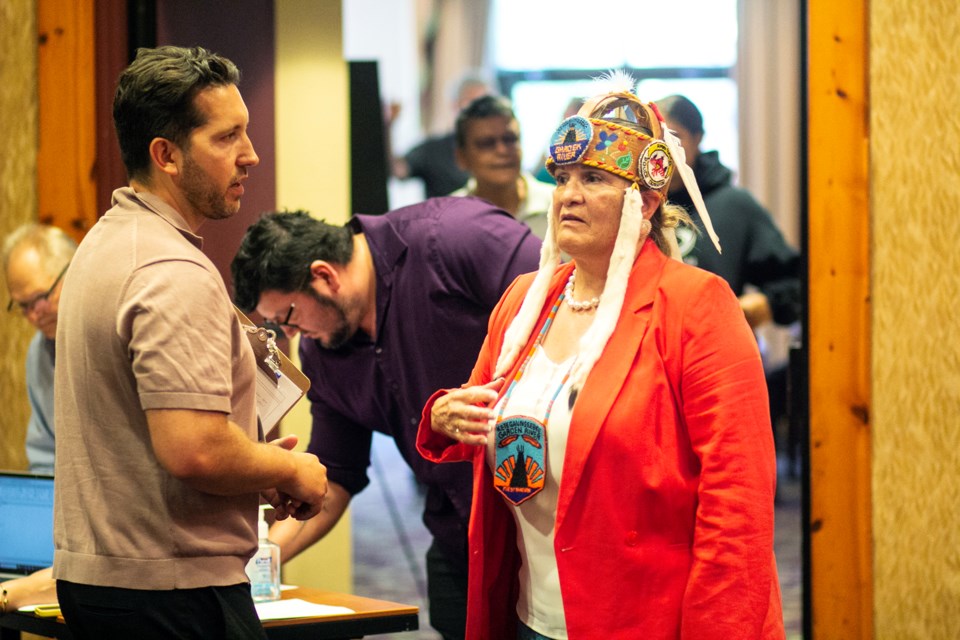Now that a preferred route has been selected for planned transmission lines, Garden River First Nation is seeking direct negotiations with Hydro One after stepping away from a consortium of First Nations brokering a profit-sharing deal with the utility.
On July 22, Chief Karen Bell of Garden River First Nation (GRFN) appeared at Hydro One’s open house for the North Shore Link Project, which will eventually add another electricity transmission line to service Sault Ste. Marie.
In a statement read to media at the event, Bell said she is not seeking an end to the development.
“This is about respect. This is about process. This is about the law,” she said.
A portion of the preferred path for the proposed transmission lines crosses over an area that is part of an active GRFN land claim with the government.
“This isn't hypothetical — it’s before the courts. We are seeking the return of that land. If it’s used now, it’s lost to our people forever,” she said.
GRFN was part of Waasmoowin Energy Inc. (WEI), a consortium of nine First Nations negotiating with Hydro One for profit sharing once the line is active.
In an interview after giving the statement, Bell said that when she became chief she began questioning the partnership and was dissatisfied that other members of WEI were outvoting GRFN on key decisions.
“We made a decision as Garden River that we weren’t getting our bang for the buck and our concerns or recommendations weren’t being considered,” Bell said.
She continued: “Since we’ve broken away, we’ve had one engagement session. They’ve come to the nation, and we’ve asked them to put a pause on this, and we’ve asked them to restart the whole engagement with Garden River as an independent nation now.”
Chief Brent Niganobe of Mississauga First Nation, chair of WEI, said he was surprised GRFN walked away from the table.
“Garden River was actually the one that brought it to us and said this is a project that we can economically benefit from, and we said absolutely — seeing that and seeing the actual economic and revenue from it,” Niganobe said.
He said the eight remaining First Nations in WEI are negotiating a 50 per cent equity interest in the North Shore Link and the North East Power Line, two electricity transmission lines being developed in Northern Ontario.
“It’s a partnership that we’re equals in and that we’ll benefit from and see a lot of economic benefit,” Niganobe said.
He added: “For generations, even before me, leaders have been fighting for this and asking for this and wanting it, and now that it’s finally here and coming to fruition, it’s something we’re very excited about that brings prosperity to us in the future.”
The July 22 session at the Water Tower Inn was one of three scheduled last week in the area.
Sonny Karunakaran, vice-president of strategic projects and partnerships at Hydro One, said the company takes into account feedback it gets from the public during the sessions.
“We utilize the information to help us actually make decisions on how we’re going to construct the project,” Karunakaran said.
He said the utility has been engaging and consulting with First Nations partners on the project since January 2023.
“During that period, we’ve had over 130 meetings with communities in order to actually learn more and to share information about the project and to help shape and develop the actual project itself. That dialogue will continue,” Karunakaran said.
The utility will publish an environmental studies report in the spring as one of the next steps in the project, he added.




